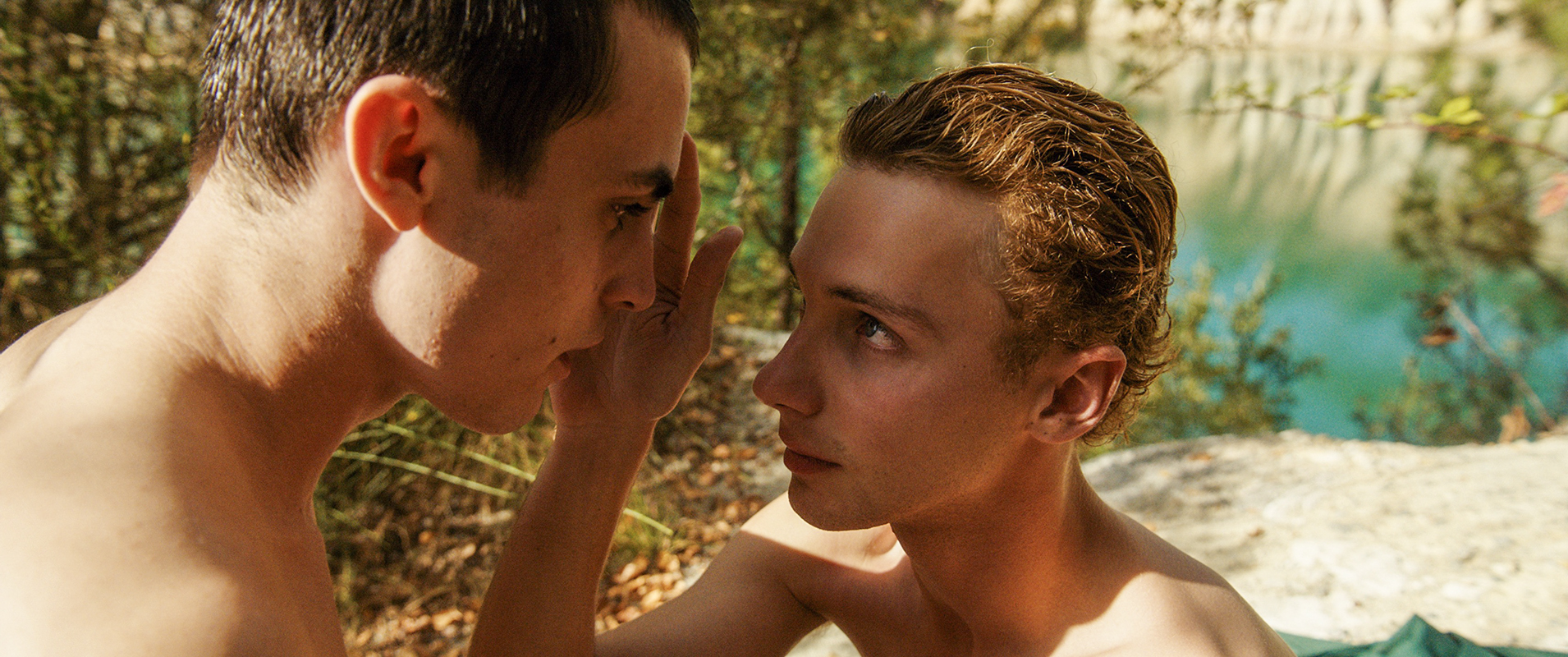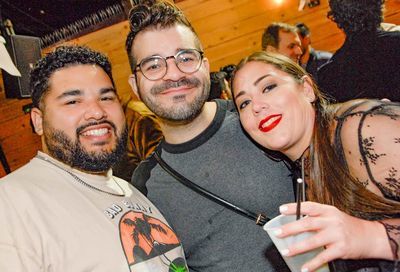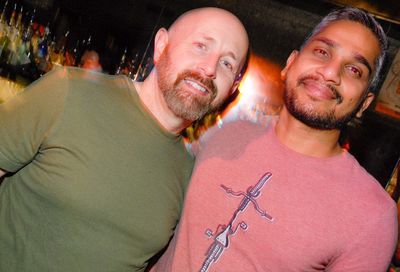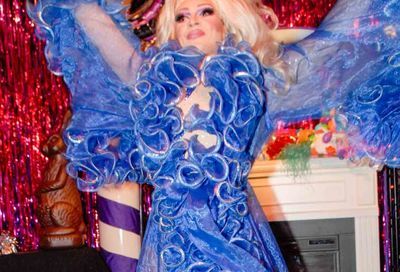Southern Discomfort: One Mississippi’s Tig Notaro
Tig Notaro's brilliant One Mississippi celebrates her own warm vision of her home state, while frequently taking it to task.

There’s a moment in the first season of One Mississippi, Tig Notaro’s semi-autobiographical comedic drama, that changes everything. It comes in episode three and strives to alarm as well as illuminate. It plunges the show, suddenly and surely, into profound territory. All with the removal of a shirt.
A breast cancer survivor, the dry, perpetually bemused Notaro has turned herself into a stand-up legend by delving into events extremely personal and painful, unearthing laughter behind the discomforts of her life — discomforts that include confronting a mortal disease and the grief of losing a parent far too soon.
Last year, Amazon Video handed Notaro the keys to a half-hour, six episode series, which she set in the state of her upbringing, Mississippi. “The Magnolia State” is often maligned by the rest of the country, particularly the north, as politically and culturally problematic. Notaro, who is loudly out, wants people to see a different side of the South she so adores. Despite stereotypes, not everyone in Mississippi is homophobic and racist. “I always speak up about it,” she says. “Don’t forget that there are other people living in these areas that are open and loving.”
The show’s first season traversed the personal — Tig’s attempts at reconciling her mother’s sudden death, uncovering some surprising family skeletons, and trying to find a means of connecting with older brother Remy (Noah Harpster) and her OCD, remote stepfather, Bill, stunningly portrayed by John Rothman. But it’s that climactic scene in episode three, one in which Tig removes her shirt and fully reveals the results of a double mastectomy, that grabs you by the throat. Emotionally shattering and essential, it is moving in ways that words simply cannot convey.
“For me it was a process of getting comfortable with my body after having cancer,” says the 46-year-old. “I was very scared of my body and my scars and what people would think of how I looked. And then I just started thinking about how scars actually represent healing.
“And then I thought about how people have scars on their face and they’re not asked to hide those. You have a scar on your arm or chin or your cheek and people aren’t horrified by that typically. So why, if I have scars on my chest, would that be horrifying?
“When I knew I was going to have a double mastectomy I was so scared,” she continues. “I Googled what that looked like and all the images — I couldn’t believe that’s what was coming to me. But now I just feel very comfortable with myself and I wanted to share that on the show with people.”
For its second season, One Mississippi goes deeper, exploring potential relationships for all three main characters, while delving into issues of the South’s relation to race, homophobia, and religion. It arguably packs almost too much content into its six-episode arc, but is a satisfying continuation of season one, focusing on two additional characters that nearly rob the thunder from the main players: Stephanie Allynne (Notaro’s real-life wife) as Tig’s radio producer Kate, with whom she shares a halting connection, and the magnificent Sheryl Lee Ralph, who steals every scene she’s in as an uncannily perfect love interest for Bill.
Notaro will be in D.C. at the end of October, once again helming the Bentzen Ball, a comedy festival produced by Brightest Young Things. For now, though, she’s in L.A., where she recently spoke by phone about the personal joy she gets from One Mississippi, as well as her feelings about the current administration, and why her home state isn’t as awful as people make it out to be.

METRO WEEKLY: The first season of One Mississippi is based very strongly on your life and its circumstances, such as your survival from cancer, your mother dying. You’ve based your comedy on your life’s events for years, but what was the experience like formalizing it in narrative form on television?
TIG NOTARO: It was very therapeutic and cathartic for me to do the TV show. There’s just different ways that it’s been helpful. Just the the pilot episode of season one was very similar to exactly what had happened in my life, and it was a way to set up everything for the whole show.
But then, the show became more fictional. That was also therapeutic in the way that I was able to let go of my reality and my story and create a whole new world. I have put my story out there in a book and documentary and stand-up, and with the TV show, it was an amazing opportunity to show people that they actually don’t know where my story is going, because I don’t even know where it’s going.
I have a writer’s room of six people, including myself, that are working on this show, and we all have contributed from our lives and experiences. Once a story becomes fictional, you can’t really go back, because you’ve created a whole different world. There’s always gonna be layers of truth and honesty in there, but it’s not always my truth or honesty. It’s somebody’s in the room.
MW: I was surprised that it was only six episodes per season. But the narrative seems to suit it.
NOTARO: When we got a call that the show was being picked up, it was presented to me like, “We have good news — and bad news. The good news is it’s picked up. And the bad news is, it’s only six episodes.” I was like, “Well, you actually just called me with two pieces of good news.” Six episodes feels so great to me because there’s no filler. It’s all just solid episodes of story. And every single one is crucial.
Also, I had been in chronic pain for the past five years with stomach issues, which I’ve since cleared up — this is just a side note, but I started eating a plant-based diet and now I’m completely pain-free, which is unbelievable. But when I was in pain, I could not do more than six episodes. It was like crawling across the finish line. Whereas now, if I were to be asked to do more work, I could do more work. I’m physically capable now. However, I don’t think I would want to do more than six episodes if we got a third season.
MW: I love the way the story reveals itself, especially in season two. What’s been the decision-making process in choosing how to open up the narrative as it progresses?
NOTARO: It’s a complicated process of layering in storylines and trying to complete the season that you’re working on, but also keeping in mind the previous season, what makes sense to that, and then also, if we get a follow-up season, what will make sense for the follow-up season. We need things to pay off in a way that we don’t just decide to throw a curveball at somebody that’s watching.

MW: You’ve set it up so that everything makes sense. It’s clearly very deliberate, but feels organic and natural. There’s very little manipulation.
NOTARO: I would like to think so. I also think it’s just the combined talents in the room, and the amazing directors we’ve brought in, the way we’ve done delivery and pacing and everything. I can’t tell you how proud of the show I am.
MW: You have Diablo Cody working with you.
NOTARO: Diablo and I wrote the pilot. She’s an executive producer, but she’s not hands-on. She and I just created the pilot, and she hasn’t written anything else beyond that.
MW: Do you ever get tired of putting your life details out there for the world to know?
NOTARO: When I do stand-up, a lot of it is based in experience and life stories and observations. I guess I could make up nonsense, but it just feels empty, I think, to do that. I think it’s the nature of being a comedian.
Obviously, I’ve gone way more personal than most, but you know, my new stand-up routine is not tremendously personal in the way that it has been in the past five years. There’s a lot of just silliness. They are still personal stories, but I think I’m finding the balance and I think I’m doing only what I want to do, and so if I tire of it, you won’t see it or hear it.

MW: The core actors you’ve surrounded yourself with are impressive, particularly John Rothman, who plays your stepfather. His performance, his character, is so compelling, and it only deepens and becomes richer in season two. Was your stepfather really like the way he’s depicted on One Mississippi, the extreme OCD, the lack of discernable warmth and emotion?
NOTARO: I would say it’s an element of my stepfather’s personality that we magnified. I wanted to show his stiffness and removed ways. I would say Bill’s character doesn’t mean to be funny, whereas my stepfather has a good sense of humor. He’s come out of his shell since my mother died. My whole family has tried to find our footing in what our family is after my mother died, both in real life and on the show.
MW: Five years after her death, how are you coping with the loss?
NOTARO: It’s definitely always there. I went through cancer after she died, and I fell in love with my wife, and I had babies. So there were monumental moments that she missed, and it’s bittersweet. I’m coping to the best of my ability with everything that’s come along my entire life.
There’s the complicated other side of things, how her death created this new relationship with my stepfather that would never have happened if she was still alive. I think she would be thrilled to see the connection that’s been created between us. It’s just people trying to connect in those empty spaces and build something that’s now missing, and hopefully create something new.
MW: How is being a mother?
NOTARO: It’s been everything from the greatest experience to the hardest. It’s all the cliché responses, but they’re true, and I feel like Stephanie and I are both really, really great and hands-on with the babies.
We were talking a couple of days ago about how the only thing anybody wants from someone that they love or care about is that person. That’s what we’re trying to give to our little boys — just ourselves. And we spend every waking hour with them. If I have to go out of town for a show, Stephanie’s home with them. Her mother lives across the street and she comes over to help if we need extra hands, which we do a lot of times. They’re surrounded by family, completely and always.
MW: Will Tig have children in the show?
NOTARO: Possibly. It’s hard to say until we find out if we have another season or not, and until we get back into the writer’s room and present different storyline options and see what makes the most sense. But I definitely feel open to that.

MW: Things have changed politically since the first season was written. One thing evident about season two is how the show comes out swinging at not just Trump, but on issues of race, sexual harassment, homophobia. There is a complete change of tone if I’m reading it right.
NOTARO: Oh yeah, you’re reading it right. We went back to work in January 2017 to write the second season, and we all showed up to the writer’s room with a lot to say and a lot of raw feelings about the election. We suspected we were in for a bad ride, but we never imagined we would almost be telling the future.
In the first season of One Mississippi, it was important for me to show being gay in the South and with my family being not a big deal, that’s it’s just nothing. I think people, as soon as they hear the South or Mississippi or whatever, they have their ideas. Although those ideas can be true, I wanted to show that it wasn’t my truth.
But with the second season, we felt it would be irresponsible to now show the other side of the reality down there. It’s not just in the South, it’s everywhere, but we wanted to show more of a rounded view.
MW: How are you feeling about about the Trump administration, this rollercoaster ride that we’re on at the moment?
NOTARO: I mean, I don’t even see it as a rollercoaster ride anymore. It just feels like it’s one hundred percent downhill, hands up, screaming. There’s no clicking up the rails in an upward motion. One hundred percent disapproval is what I would like to say.
MW: Do you think there’s an even remotely positive ending to this ride?
NOTARO: There’s already been so much good that’s come out of people waking up and becoming more active, trying to educate themselves about what’s going on and how to apply themselves. It’s creating way more activism, which is very positive.
MW: Obviously, there’s racism in the country that is in the process of boiling over, and a lot of it is associated with the South and the Confederacy. Does the South get an unfair rap over all of this?
NOTARO: I can’t say it’s unfair, but I always speak up about it. Don’t forget that there are other people living in these areas that are open and loving. I had dinner in Jackson, the capital of Mississippi. And I was walking down the sidewalk and this guy was eating in a restaurant. He saw me, and got up from his table and ran out of the restaurant after me. And he profusely thanked me for speaking up for others in Mississippi, that it’s not everyone, and to bring attention to the state and try to make it better. I mean, this guy was so thankful. It was like a raft had come ashore at a deserted island. I relate to that, you know? I’m from that state and I feel like that’s not me. I really want to avoid the blanket [of racism] going over everyone.

MW: The show tangentially deals with Civil War reenactments. Do you have an opinion on what we should do with the monuments to that era?
NOTARO: Are you asking if they should come down? I feel exhilarated when I wake up and read the news about some other city of group or town taking down these confederate heroes. It feels like such a slap in the face to so many people to have them up. Obviously you can’t erase history. Put them in a museum. That’s where they can be.
MW: Given Trump’s response to the recent events in Charlottesville, do you feel our president is racist?
NOTARO: For sure. I don’t know how you could act the way that he does and support the people and groups that he does and say that he’s not.
Season two of One Mississippi premieres on Amazon Prime on Friday, September 8. Visit Amazon.com/primevideo.
Support Metro Weekly’s Journalism
These are challenging times for news organizations. And yet it’s crucial we stay active and provide vital resources and information to both our local readers and the world. So won’t you please take a moment and consider supporting Metro Weekly with a membership? For as little as $5 a month, you can help ensure Metro Weekly magazine and MetroWeekly.com remain free, viable resources as we provide the best, most diverse, culturally-resonant LGBTQ coverage in both the D.C. region and around the world. Memberships come with exclusive perks and discounts, your own personal digital delivery of each week’s magazine (and an archive), access to our Member's Lounge when it launches this fall, and exclusive members-only items like Metro Weekly Membership Mugs and Tote Bags! Check out all our membership levels here and please join us today!
























